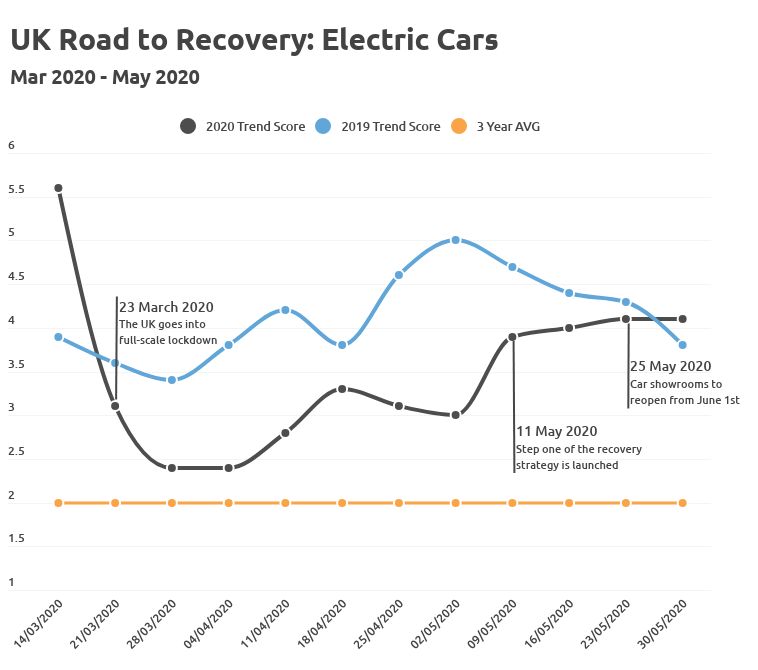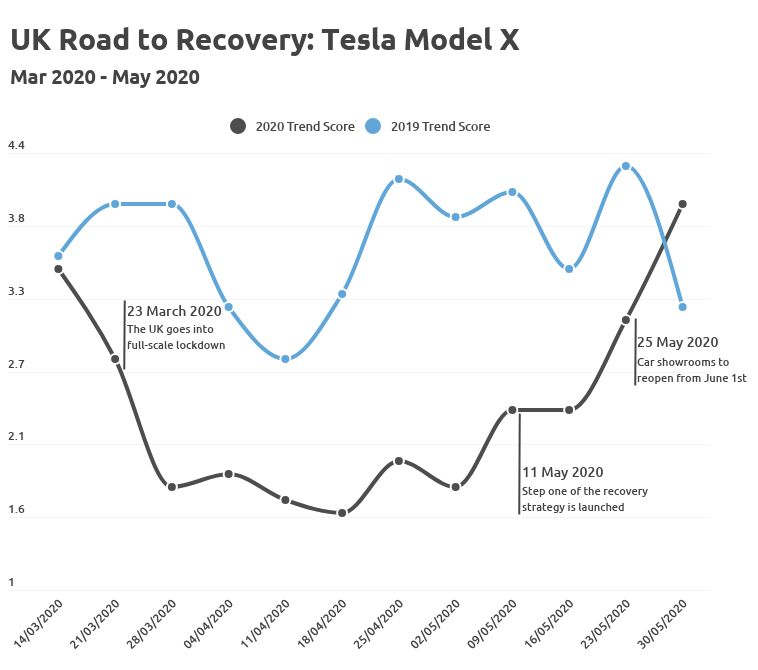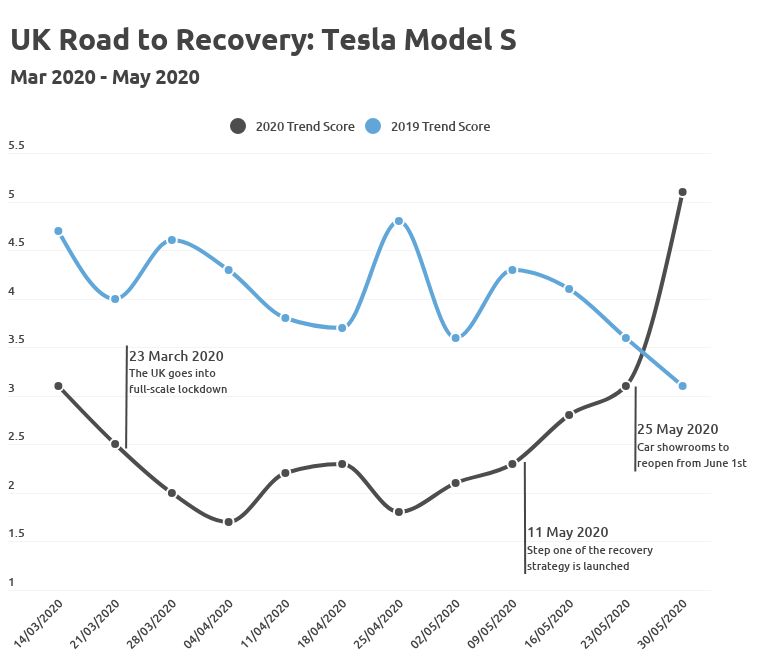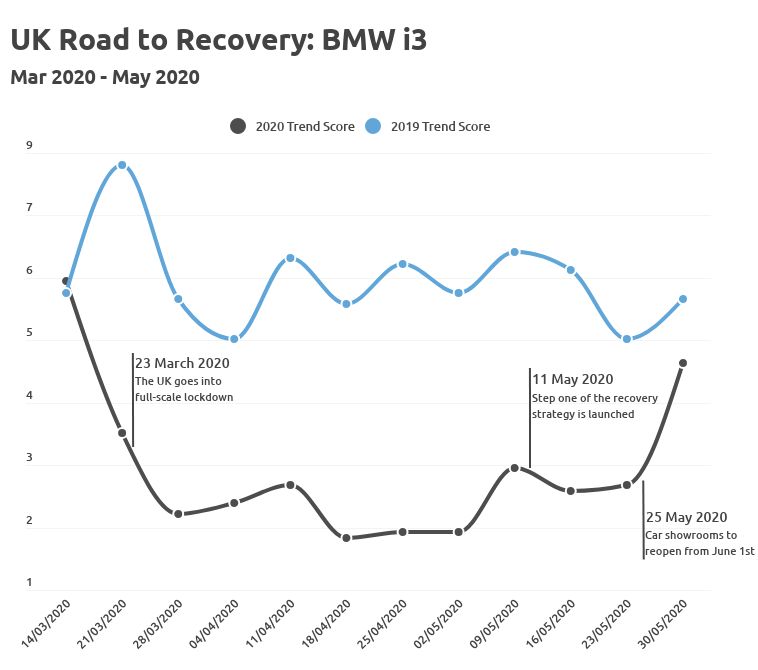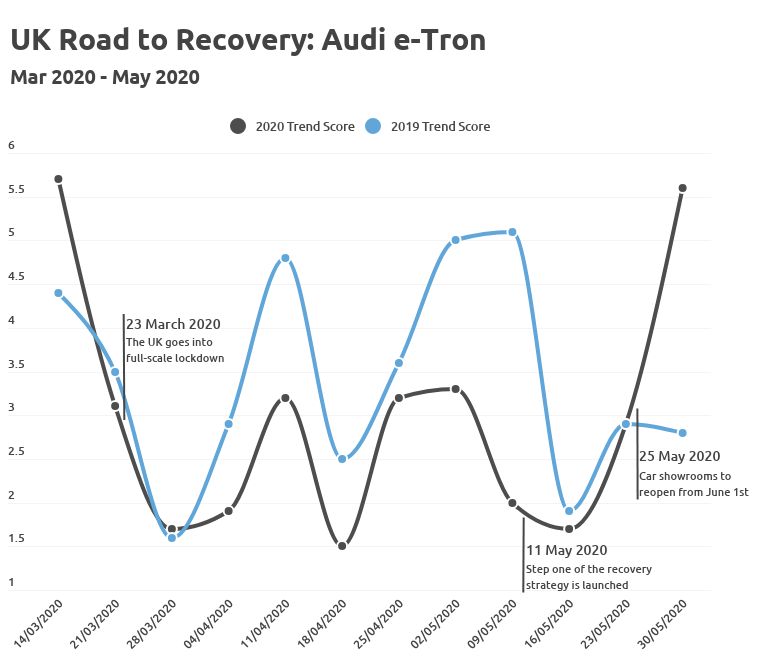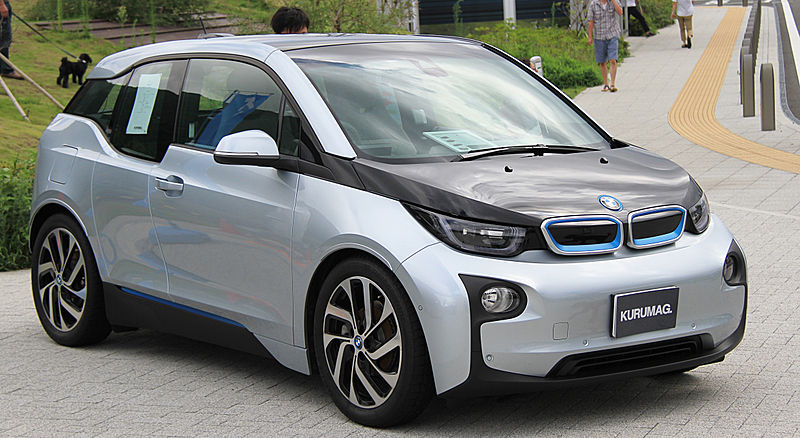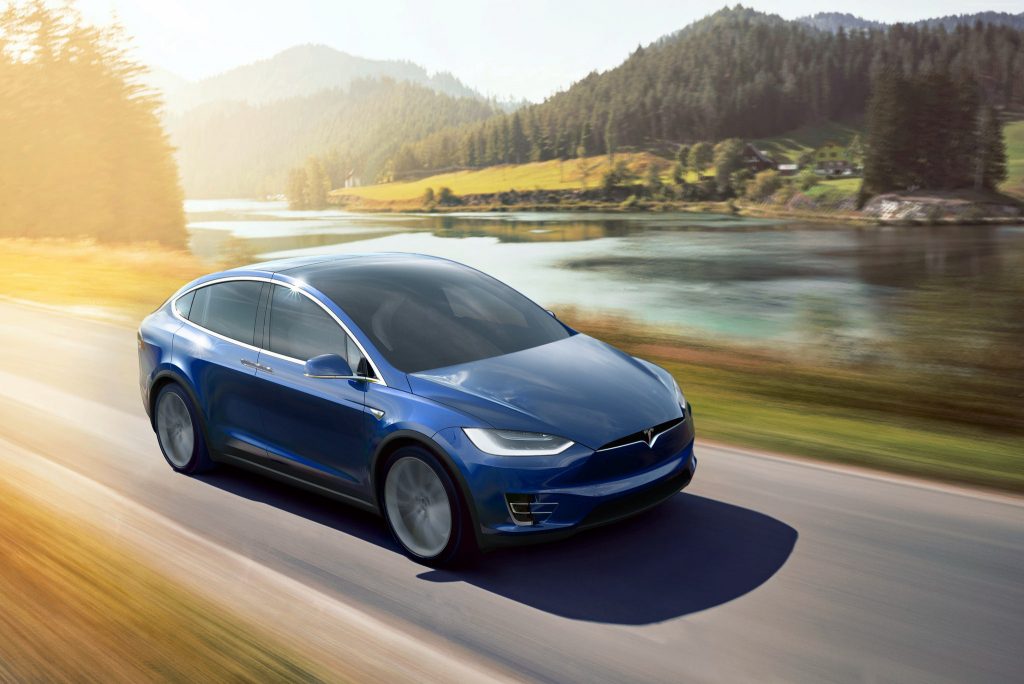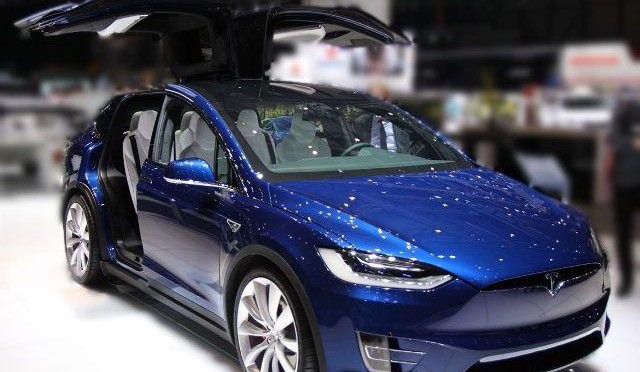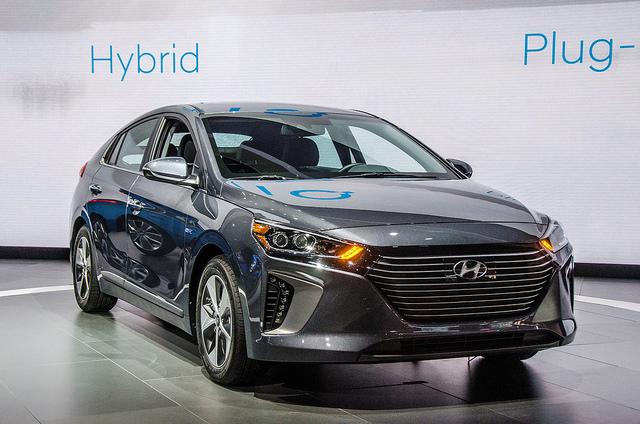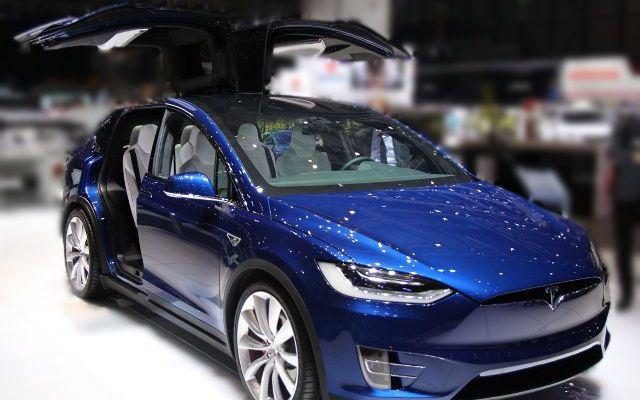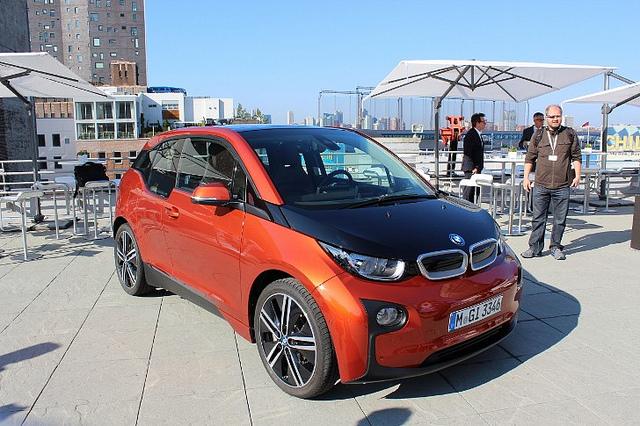Google Trends data show that, since the PM’s launch of the COVID-19 recovery strategy (11 May), there has been a significant boom in demand across the automotive industry – so much so that the demand is now parallel with the numbers pre-lockdown, this surge in demand is especially evident in the electric vehicle industry.
The Road to Recovery Dashboard: Electric Vehicles is part of a tool built by LeaseFetcher, a car leasing comparison site based in Scotland. “The dashboard aims to observe long term and immediate changes in demand and will help inform predictions about the future for the electric vehicle and automotive industry,” says Will Craig, Founder of LeaseFetcher.
Pulling its raw data from Google Trends on a weekly basis, the tool provides an invaluable insight into consumer sentiment and behaviour.
In March, demand across the automotive industry nosedives. Now, following the announcement on the 11th of May, introducing step one of the recovery strategy, demand is once again on the rise.
While search volume for ‘electric car’ hasn’t yet returned to its pre-COVID levels, there’s every indication that it will do soon.
Specifically, the Tesla Model S and Model X have seen strong recoveries, matching and even exceeding interest this time last year.
Demand for the compact BMW i3 has recently returned to its pre-COVID levels, while the higher-end Audi e-Tron has already exceeded this. This is a strong recovery considering the demand fell by 70.1% and 63.5% respectively from the 8th of March to the 22nd of March.
With over 200 miles of range now the norm and 30 minute fast chargers popping up left, right and centre, electric car owners have less and less to grumble about and potential new owners fewer transition barriers. With demand bouncing back with such force, we are likely to see a surge in new electric vehicle registrations in the coming months.
If COVID-19 has shown us one thing, it is the very tangible impact of air pollution on our health. Around the world, people have had their first taste of truly fresh air for a very long time as roads were closed, cars left unused and heavy industry was brought to a standstill. Electric cars produce zero tailpipe emissions, which make them an invaluable part of any strategy to tackle inner-city emissions and to make the world a greener, better, place.
The Road to Recovery Dashboard for Electric Vehicles will continue to be updated on a weekly basis to track the progress of the industry-wide recovery from COVID-19.

